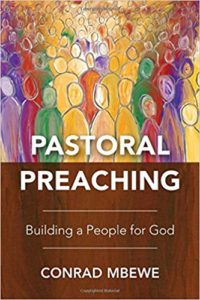 Applying the Bible to people today is the toughest task I face in preaching. Listeners want to know what a book written so long ago has to say to them now. It is not hard for the preacher to be relevant. That is the easy part. All I have to do is preach what people want to hear. No! The hard task is showing listeners that the Bible is relevant to their lives. The challenge is connecting the text with the application so that the Bible speaks, not me! The temptation for every preacher is to mishandle the text in our desire to be relevant. Sermons mislead more often in application than information making it our most significant challenge. Read more…
Applying the Bible to people today is the toughest task I face in preaching. Listeners want to know what a book written so long ago has to say to them now. It is not hard for the preacher to be relevant. That is the easy part. All I have to do is preach what people want to hear. No! The hard task is showing listeners that the Bible is relevant to their lives. The challenge is connecting the text with the application so that the Bible speaks, not me! The temptation for every preacher is to mishandle the text in our desire to be relevant. Sermons mislead more often in application than information making it our most significant challenge. Read more…THE BIBLE? FOR ME?
 Applying the Bible to people today is the toughest task I face in preaching. Listeners want to know what a book written so long ago has to say to them now. It is not hard for the preacher to be relevant. That is the easy part. All I have to do is preach what people want to hear. No! The hard task is showing listeners that the Bible is relevant to their lives. The challenge is connecting the text with the application so that the Bible speaks, not me! The temptation for every preacher is to mishandle the text in our desire to be relevant. Sermons mislead more often in application than information making it our most significant challenge. Read more…
Applying the Bible to people today is the toughest task I face in preaching. Listeners want to know what a book written so long ago has to say to them now. It is not hard for the preacher to be relevant. That is the easy part. All I have to do is preach what people want to hear. No! The hard task is showing listeners that the Bible is relevant to their lives. The challenge is connecting the text with the application so that the Bible speaks, not me! The temptation for every preacher is to mishandle the text in our desire to be relevant. Sermons mislead more often in application than information making it our most significant challenge. Read more…A JEREMIAH MINISTRY?
 “Well, if your church doesn’t grow,” a former pastor’s wife said to Barbara Hughes, “Kent is going to feel like a failure.” Barbara had been talking with a woman whose husband had left the pastorate to sell life insurance. She knew that success in ministry is generally measured by growth in numbers. Kent and Barbara were struggling with a declining church, and Kent felt like a failure. They tell their story in Liberating Ministry from the Success Syndrome. I remember sitting in a classroom years ago listening to Kent and Barbara and thinking how helpful it was to me as a new pastor. Barbara told the woman, “I don’t know why, but you are wrong, and I’m not going to rest until I find out why!” Read more…
“Well, if your church doesn’t grow,” a former pastor’s wife said to Barbara Hughes, “Kent is going to feel like a failure.” Barbara had been talking with a woman whose husband had left the pastorate to sell life insurance. She knew that success in ministry is generally measured by growth in numbers. Kent and Barbara were struggling with a declining church, and Kent felt like a failure. They tell their story in Liberating Ministry from the Success Syndrome. I remember sitting in a classroom years ago listening to Kent and Barbara and thinking how helpful it was to me as a new pastor. Barbara told the woman, “I don’t know why, but you are wrong, and I’m not going to rest until I find out why!” Read more…SERMON PREP AS SOUL PREP
 How do you stay fresh as a pastor? I have been asked that question many times over the years. As pastors, we spend much of our time preparing to preach. We carefully exegete the passage. The author’s intent, historical/cultural context and textual analysis play important roles in our exegesis. The danger is that sermon prep becomes an academic exercise – a technical skill we develop or a professional task we perform. Professional sermon creators preach shallow messages because our sermons come from shallow hearts. Preachers can substitute technical skills for spiritual depth leading to superficial sermons. How do we prep our souls to preach soul refreshing sermons? Read more…
How do you stay fresh as a pastor? I have been asked that question many times over the years. As pastors, we spend much of our time preparing to preach. We carefully exegete the passage. The author’s intent, historical/cultural context and textual analysis play important roles in our exegesis. The danger is that sermon prep becomes an academic exercise – a technical skill we develop or a professional task we perform. Professional sermon creators preach shallow messages because our sermons come from shallow hearts. Preachers can substitute technical skills for spiritual depth leading to superficial sermons. How do we prep our souls to preach soul refreshing sermons? Read more…BOOK REVIEW OF PASTORAL PREACHING

Conrad Mbewe captured my attention with his book on pastoral preaching published in 2017. I have been reflecting much on the uniqueness of pastoral preaching as distinct from evangelistic/missional and national/universal church preaching. Many leaders write books on missional preaching today. How do we reach our culture for Christ? Many of our most popular models for preaching are people who preach to the body of Christ as a whole. Their preaching is generic because their audience is general. We can gain much benefit from these resources, but I think we need more emphasis on pastoral preaching. Mbewe’s book is an excellent step in that direction, written by a local church pastor with a local church vision. Read more…
OH NO! ANOTHER CHRISTMAS SERMON!

It is the fattest folder in my file cabinet. A pastor once jokingly told me that he knew it was time to retire after 30 years in his church because he couldn’t come up with another Christmas sermon. I have been preaching in the same church for 27 years. My “Christmas Messages” file is full while my brain seems empty. I have preached 40 Christmas sermons not counting Christmas Eve and Christmas program homilies. I have preached 6 sermons from the Old Testament, 27 from the Gospels, 6 from the epistles and 2 from Revelation. Read more…
PREACHING TO THE CROWD OR THE CORE?

Should we preach to the crowd or the core on Sunday morning? Should our sermons be evangelistic, or edifying, to the unchurched or the churched? Many argue today that our preaching should be cross-centered salvation oriented messages rather than expository Bible teaching. The biblical examples of sermons by Jesus and the apostles focus on reaching the crowds of people with the gospel; the argument goes, so we should preach the same way. (Never mind the pesky distinction that Jesus and Paul preached in the marketplace of the city, not the gathered community of believers.) Furthermore, the popularity of attractional sermons seems to validate the method. Read more…
ENABLING GRACE OR RELIGIOUS MORALISM

“What is moralism and why is it wrong to preach moralism? Are we not supposed to call people to live morally?” One person raised these questions at a recent preaching cohort. Our sermons can degenerate into religious moralism if we fail to keep Christ and the cross in view as we preach on the demands of the Bible. Since God’s holy standards are clear, how can we avoid preaching moralism?
SERMONS ROOTED IN LOCAL SOIL

“Pastor, I was here before you arrived, and I will be here long after you leave.” Such sentiments have been expressed in one form or another by church people over the years. The truth is, as pastors, we start in a local church as foreigners or aliens. We are from “away.” Ministry success in other contexts does not guarantee ministry success in the new context. We must learn the culture of the new community. Missiologists call it contextualization, and contextualization matters more than we realize in our preaching.
WHAT’S A SERMON TO DO?
 I went to the fair last week, a day filled with fried dough, horse pulling, and old tools. The farm museum displayed obsolete pieces of equipment culled from deteriorating barns and tagged to explain their purposes. The curator had tagged some items with the question, “What does this do?” The farm equipment had lost its purpose, and even the curator did not know what it was. Sermons, too, can become like old barns and rusty tools. Preaching loses its God-intended purpose when divorced from the God-inspired text. God breathed His Word through His writers to do something in our lives today (2 Tim. 3:16-17). Every sermon should do what God intended to do through the passage being explained. Read more…
I went to the fair last week, a day filled with fried dough, horse pulling, and old tools. The farm museum displayed obsolete pieces of equipment culled from deteriorating barns and tagged to explain their purposes. The curator had tagged some items with the question, “What does this do?” The farm equipment had lost its purpose, and even the curator did not know what it was. Sermons, too, can become like old barns and rusty tools. Preaching loses its God-intended purpose when divorced from the God-inspired text. God breathed His Word through His writers to do something in our lives today (2 Tim. 3:16-17). Every sermon should do what God intended to do through the passage being explained. Read more…TURF WARS AND BATTLE SCARS

Where there are people there are power struggles. As a new pastor, I unknowingly waded into the middle of a scrum in one of my sermons. I was quickly informed, in no uncertain terms, whose turf I had infiltrated through my preaching. Every church has tribal chiefs who stake out their turf and expect to be consulted, at the very least, before anything happens in their areas of responsibility. Turf wars develop when the pastor or other leaders encroach on another’s turf. Even our sermons can threaten tribal chiefs.


